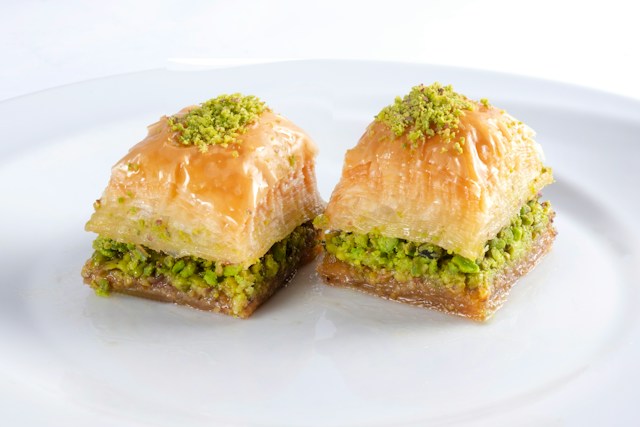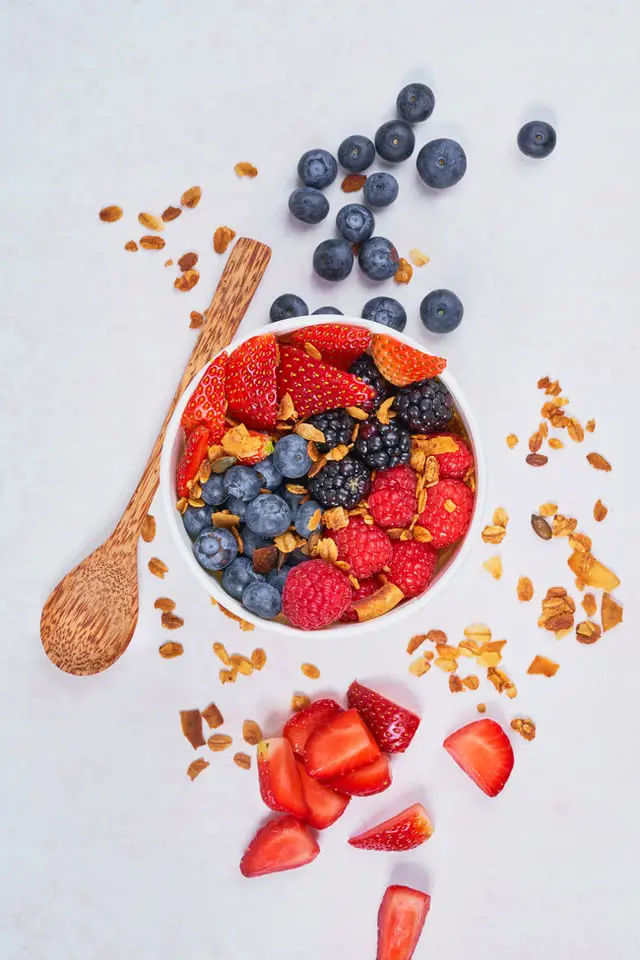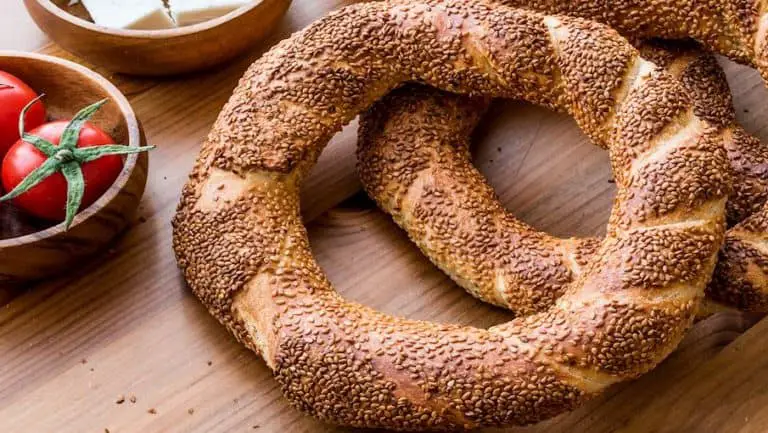Baklava: A Rich History of Sweet Indulgence
Baklava: A History of Sweet Indulgence
Baklava is a traditional dessert that has been enjoyed for centuries in various countries around the world. This sweet treat is made with layers of delicate phyllo dough and a flavorful filling of chopped nuts, spices, and syrup. The exact baklava origin still a matter of debate among food historians, but it is believed to have originated in the ancient Assyrian Empire or the kitchens of the Ottoman Empire. Today, baklava is a beloved dessert that is enjoyed by people of all ages and backgrounds, and it has even made appearances in popular culture.
Baklava Origin
The exact origin of baklava is still a matter of debate among food historians. Some claim that it originated in the Ottoman Empire, while others trace its roots to the ancient Greeks and Romans. Regardless of its origin, baklava has become a popular dessert in many Mediterranean and Middle Eastern countries.
According to “Green and gold: the story of baklava” (source: Great British Chefs), the earliest known recipe for baklava dates back to the 13th century, during the Ottoman Empire. However, similar desserts made with phyllo dough and nuts have been found in ancient Greek and Roman cookbooks.
The baklava history is still a matter of debate among food historians. However, there are several theories about where this delicious dessert may have originated.
One theory is that baklava origin was in the ancient Assyrian Empire, which was located in what is now modern-day Iraq. According to this theory, the Assyrians made a dessert called “mithracina,” which was made with thin layers of dough and filled with nuts and honey.
Another theory is that baklava was first made in the kitchens of the Ottoman Empire, which spanned across much of southeastern Europe, western Asia, and northern Africa. During this time, baklava became a popular treat among the elite classes of society, and it was often served during special occasions and celebrations.
Regardless of the precise baklava history, it has become a beloved dessert in many countries around the world, and it continues to be enjoyed by people of all ages and backgrounds. Whether you prefer the traditional version made with walnuts and honey, or a modern twist with pistachios and rosewater, there’s no denying the sweet and indulgent appeal of baklava.
Ingredients and Variations

Baklava is typically made with layers of phyllo dough, chopped nuts (such as walnuts or pistachios), and a syrup made from honey or sugar. However, there are many regional and cultural variations of baklava, each with its own unique twist.
Here are some more details about the ingredients and variations of baklava, presented in a bullet-point format:
Ingredients:
- Phyllo dough: A thin and delicate pastry dough that is used to make the layers of baklava.
- Nuts: Typically, baklava is made with chopped walnuts, pistachios, or a combination of both. Other nuts, such as almonds or hazelnuts, can also be used.
- Syrup: Baklava is typically soaked in a syrup made from sugar, honey, and water. Some variations may also include flavors such as rosewater or orange blossom water.
- Spices: Depending on the variation, baklava may be flavored with spices such as cinnamon, cloves, or cardamom.
- Butter: Melted butter is often brushed between the layers of phyllo dough to add flavor and texture.
Variations:
- Greek baklava: This variation typically includes a mixture of cinnamon and cloves in the nut filling, and is often topped with a honey syrup.
- Turkish baklava: Turkish baklava is known for its use of pistachios in the filling, and is often served with a lighter syrup made with rosewater.
- Lebanese baklava: This variation often includes a combination of walnuts and almonds in the filling, and may be flavored with orange blossom water.
- Armenian baklava: This variation is often made with a mixture of cinnamon and cardamom, and may include a layer of fruit such as apricots or figs.
- Vegan baklava: Vegan versions of baklava may use ingredients such as coconut oil or vegan butter in place of traditional butter, and may use agave nectar or maple syrup in place of honey.
For a delicious baklava recipe, check out “Baklava Recipe” (source: Natasha’s Kitchen).
Baklava in Popular Culture
Baklava has made appearances in various forms of popular culture, from movies and TV shows to literature. In the popular TV show “Friends,” for example, the character Joey Tribbiani famously loves to eat baklava. In certain cultures and traditions, baklava holds special significance. In Greece, for example, baklava is often served on special occasions such as weddings and religious holidays. In Turkey, it is commonly served during the month of Ramadan, and in Lebanon, it is often served during the Christmas season.
Here’s some more information about baklava in popular culture: Movies and TV Shows: Baklava has made appearances in various movies and TV shows over the years. In the movie “My Big Fat Greek Wedding,” baklava is featured prominently as a traditional Greek dessert.
Literature: Baklava has also been mentioned in various works of literature. In the book “A Thousand Splendid Suns” by Khaled Hosseini, for example, the main character Mariam makes baklava for her husband Rasheed as a way to win his affection. In the book “The Bastard of Istanbul” by Elif Shafak, baklava is described as a “sacred dessert” that is an important part of Turkish culture.
Social Media: Baklava has also become a popular topic on social media, with people sharing pictures and videos of their favorite baklava recipes and creations. The hashtag #baklava has over 2 million posts on Instagram as of 2024, and there are countless videos on YouTube that show how to make different variations of this sweet treat.
Overall, baklava has become a beloved dessert that is enjoyed by people all over the world. Whether it’s featured in movies and TV shows, mentioned in literature, or celebrated on social media, there’s no denying the sweet and indulgent appeal of baklava.
For more information on the cultural significance of baklava, check out “Baklava: A Sweet Cultural Controversy of Eurasia” (source: Folkways Today).
Baklava Pronunciation
Baklava pronunciation can vary depending on the country and language. In English, it is typically pronounced as “bahk-lah-vuh,” while in Turkish, it is pronounced as “bahk-lah-vah.” In Greek, it is pronounced as “vahk-lah-vah.”
Here’s some more information about baklava pronunciation:
- English Baklava Pronunciation: In English, baklava is typically pronounced as “bahk-lah-vuh.” This pronunciation emphasizes the second syllable and uses a “v” sound instead of a “w” sound for the final letter. Some people may also pronounce the first syllable as “back” instead of “bahk.”
- Turkish Baklava Pronunciation: In Turkish, baklava is pronounced as “bahk-lah-vah.” This pronunciation emphasizes the final syllable and uses a “w” sound instead of a “v” sound for the final letter. Turkish pronunciation also tends to be more staccato than English pronunciation.
- Greek Baklava Pronunciation: In Greek, baklava is pronounced as “vahk-lah-vah.” This pronunciation emphasizes the first syllable and uses a “v” sound instead of a “w” sound for the final letter. Greek pronunciation also tends to be more drawn-out than English pronunciation.
- Regional Variations: The pronunciation of baklava can also vary depending on the region or country. For example, in Lebanon, baklava is often pronounced as “bahk-lah-wa,” with a “w” sound instead of a “v” sound for the final letter. In some regions of Turkey, baklava may be pronounced as “bahk-lah-vee,” with an “ee” sound instead of an “ah” sound for the final letter.
Overall, the pronunciation of baklava can vary depending on the language, region, and personal preference. Whether you prefer the English, Turkish, or Greek pronunciation, there’s no denying the sweet and indulgent appeal of this beloved dessert.
Conclusion
Baklava is a delicious and beloved dessert that has a rich history and cultural significance. Whether you prefer the Greek, Turkish, or Lebanese version, there is no denying the sweet indulgence that is baklava.







